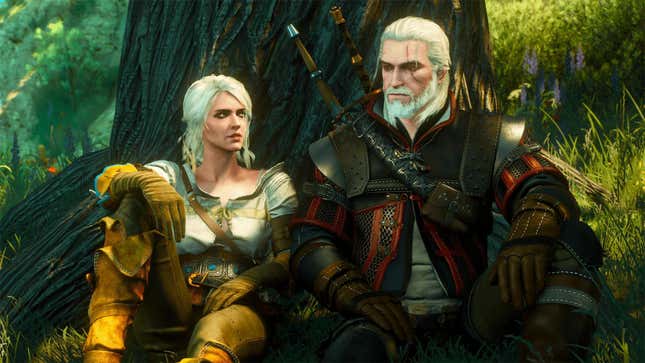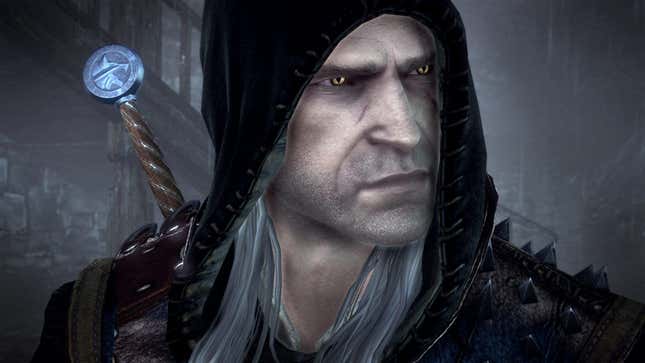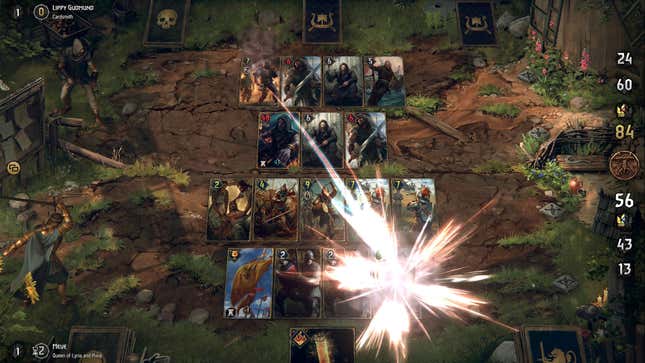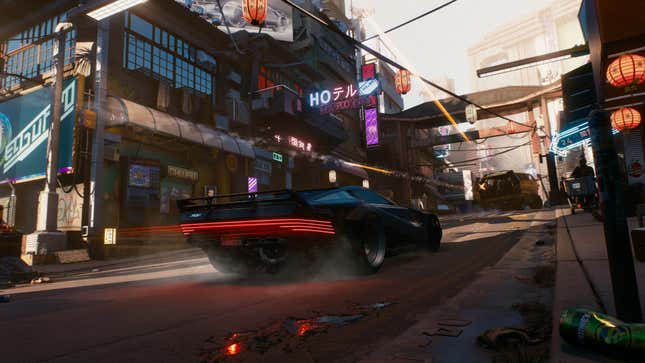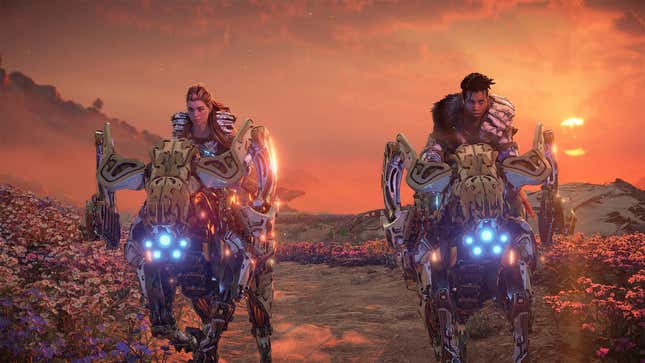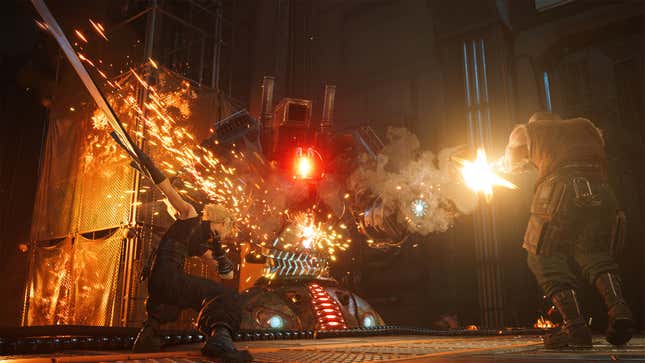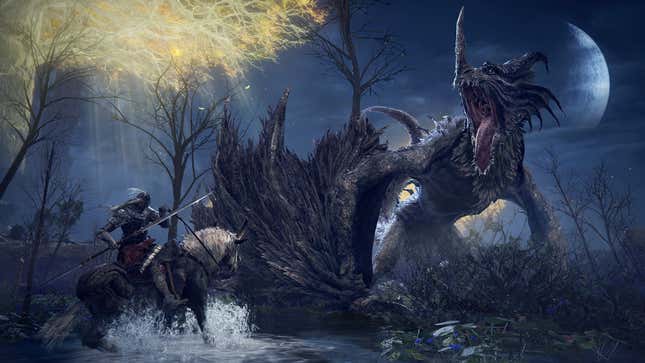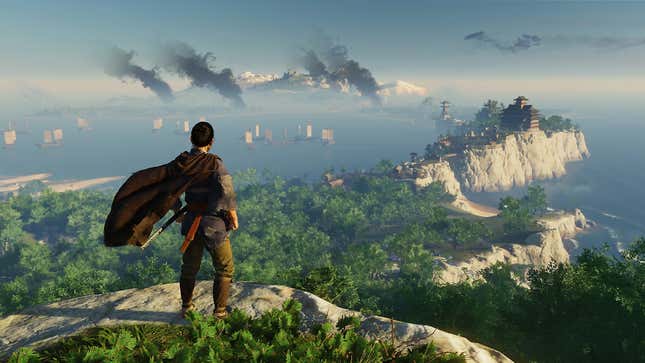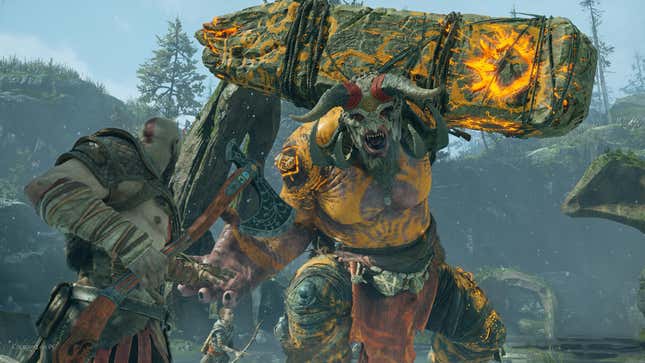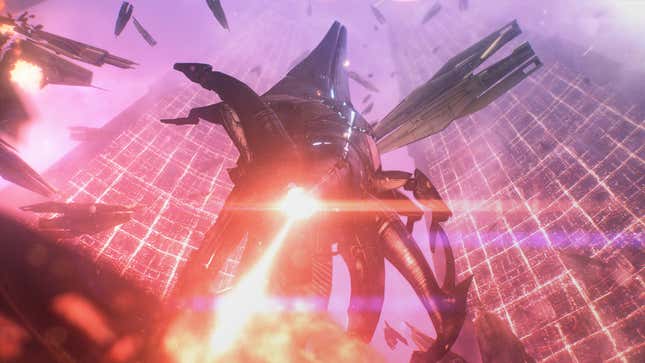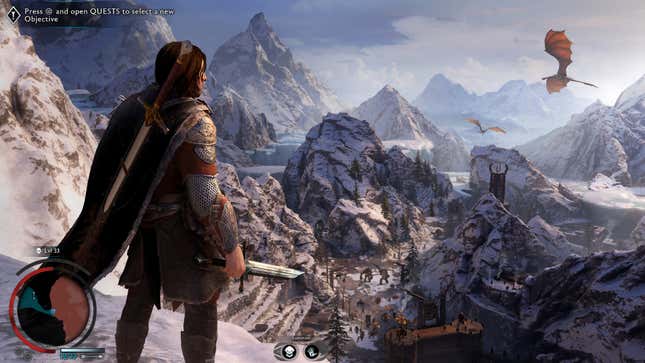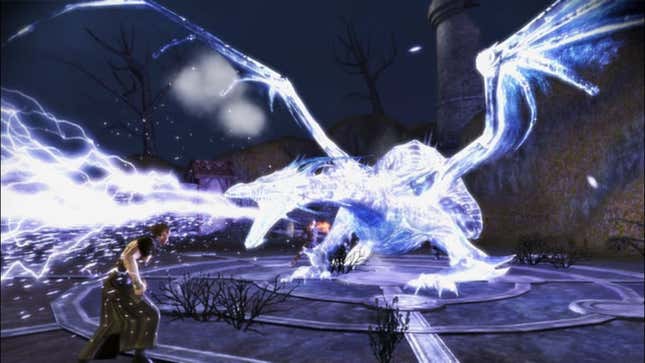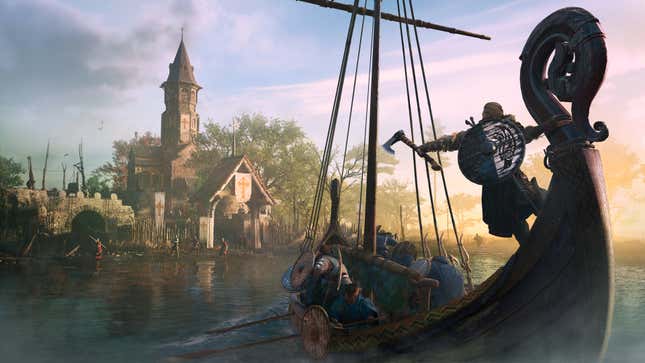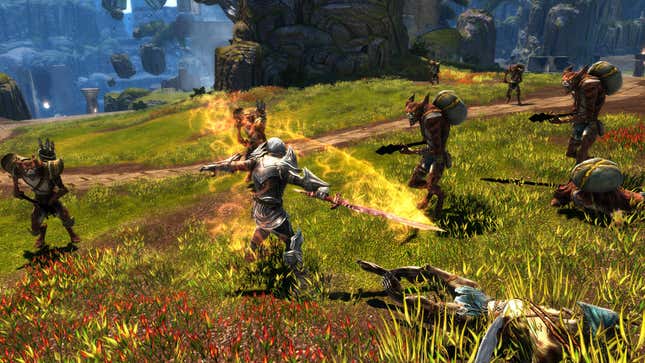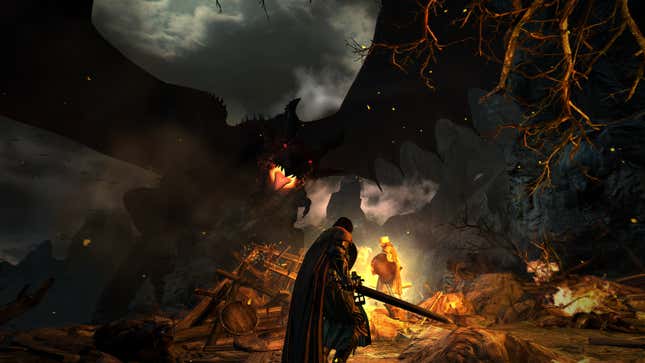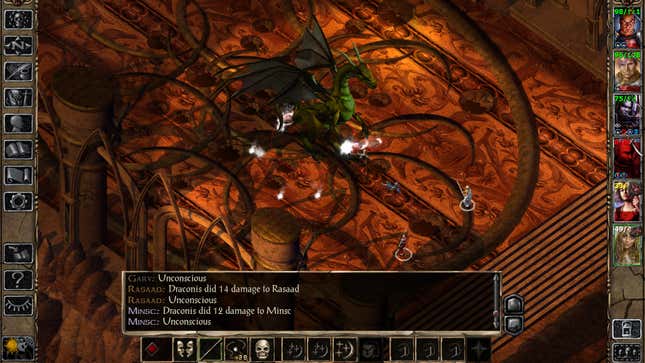For more of: Dark medieval fantasy, open-world exploration
Notable differences: Customizable protagonist, considerably higher base difficulty, a more mysterious story
Availability: Windows (Steam Deck OK), PS4, PS5, Xbox One, Xbox Series X/S
At its hardest difficulty, The Witcher 3 is no slouch. But if Geralt’s high-fantasy adventure against fearsome foes has you in the mood for a greater, tougher fantasy challenge, look no further than Elden Ring. Set in an open world that gives a level of freedom, exploration, and choice that the previous FromSoft games don’t; you’ll explore dungeons, face down epic bosses, and roam across a haunting world on your trusty spirit steed, Torrent.
Read More: Elden Ring: The Kotaku Review
Elden Ring’s much higher difficulty level is one of the most notable differences from The Witcher 3. Since it’s set in an open world, however, you have a bit more freedom to determine where you want to spend your time grinding and against which foes, choosing to wait for the greater challenges once you (or your build) are ready. It’s kind of like an invisible difficulty slider (shh, don’t let the purists know).
There’s dramatically more flexibility in how you can spec out a character in Elden Ring as well. Whether you favor steel or spells, there’s a lot of fun in figuring out where you want to take your build as you travel across The Lands Between.
One key difference is in how Elden Ring tells its story. The Witcher 3 certainly is more traditional in how it conveys the saga of the world and its characters, with cutscenes and moments of stand-still dialogue. Elden Ring is more cryptic, some might say austere, in how it presents its world to you, but if you love a good fantasy story, Elden Ring sure is a world to remember.
Also, as The Witcher has its narrative roots in a wonderful set of written fiction, so too does Elden Ring draw its material directly from the work of one of fantasy’s great contemporary authors. George R.R. Martin built the foundation of Elden Ring, on which director Hidetaka Miyazaki crafted the game.
Elden Ring’s open world and choice over where you want to go certainly makes it more resonant to The Witcher 3 than, say, any of the Souls games. But you may wish to consider those if you’re a little burnt out on a vast, open world.
